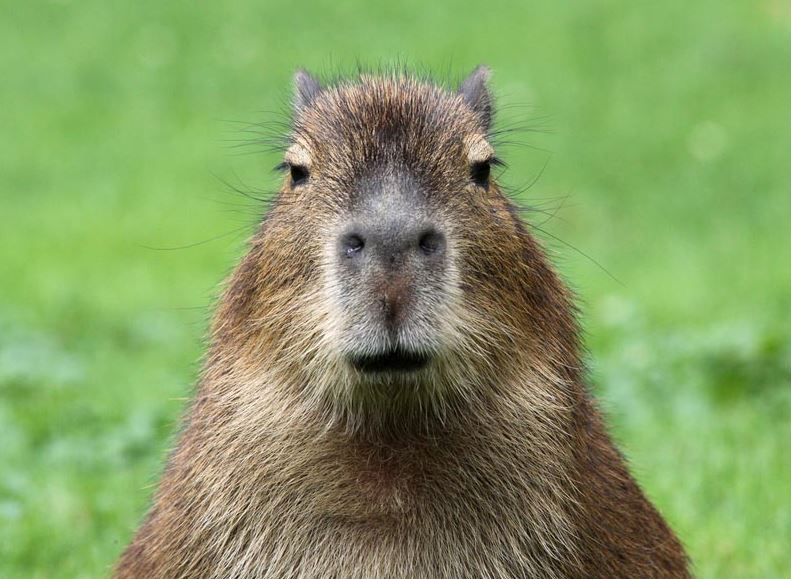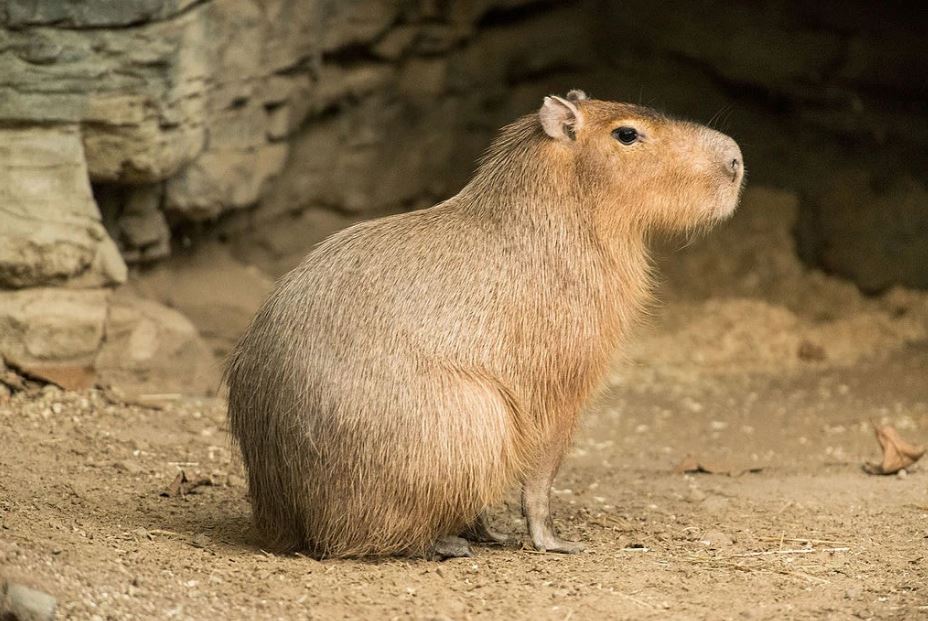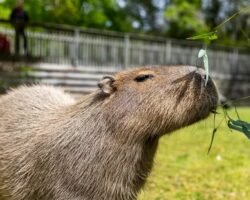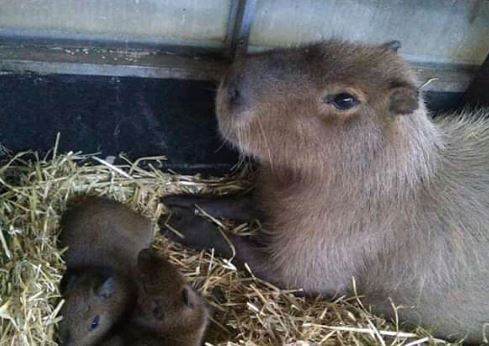Since Massachusetts law allows individuals to keep certain wild animals such as amphibians and reptiles as pets, many people have wondered if it is legal to own a capybara in the state.
Without a doubt, capybara are adored by many people across the world and they are one of the most common exotic pets to own. Obviously, capybaras are docile, friendly, and calm with human beings and other animals in the wild.
While capybaras are allowed to be domesticated in many parts of the United States, Massachusetts laws are strict on capybara ownership.
Although owning a pet capybara in Massachusetts isn’t explicitly illegal, the law requires permits to be issued for the possession and ownership of any non-domesticated wild animal. These permits were not issued for animals intended to be owned as pets, so it is practically impossible for individuals to own pet capybaras in the state.
Are Capybaras Legal In Massachusetts?
It is illegal to own or domesticate a capybaras in Massachusetts. Though friendly in nature, capybaras are wild animals and may be harmful to the health, life, and safety of people in Massachusetts.
The laws of Massachusetts were enacted and established to protect the citizens and animals in the state. If you are a capybara enthusiast, it will be impossible for you to keep a capybara in Massachusetts.
Check the table to know where you can legally keep a capybara in the U.S.
| STATE | LEGALITY |
| Alabama | Legal |
| Alaska | ILLEGAL |
| Arizona | Legal |
| Arkansas | Legal |
| California | ILLEGAL |
| Colorado | ILLEGAL |
| Connecticut | ILLEGAL |
| Delaware | Legal |
| Florida | Legal |
| Georgia | ILLEGAL |
| Hawaii | Legal |
| Idaho | Legal |
| Illinois | ILLEGAL |
| Indiana | Legal |
| Iowa | Legal |
| Kansas | Legal |
| Kentucky | Legal |
| Louisiana | Legal |
| Maine | Legal |
| Maryland | Legal |
| Massachusetts | ILLEGAL |
| Michigan | Legal |
| Minnesota | Legal |
| Mississippi | Legal |
| Missouri | Legal |
| Montana | Legal |
| Nebraska | Legal |
| Nevada | Legal |
| New Hampshire | Legal |
| New Jersey | Legal |
| New Mexico | Legal |
| New York | ILLEGAL |
| North Carolina | Legal |
| North Dakota | Legal |
| Ohio | Legal |
| Oklahoma | Legal |
| Oregon | ILLEGAL |
| Pennsylvania | Legal |
| Rhode Island | Legal |
| South Carolina | Legal |
| South Dakota | Legal |
| Tennessee | Legal |
| Texas | Legal |
| Utah | Legal |
| Vermont | ILLEGAL |
| Virginia | Legal |
| Washington | Legal |
| West Virginia | Legal |
| Wisconsin | Legal |
| Wyoming | Legal |
How To Own a Capybara In Massachusetts Through a Permit
As mentioned, the state of Massachusetts has stringent laws regarding capybara ownership. Like many regions in the U.S., the state of Massachusetts has strict laws regarding the ownership of wildlife animals.
The Massachusetts General Laws [Chapter 131, Section 23] say that it is illegal to own, sell, or import any wild animal in the state without following due process, which includes acquiring the proper permits and licenses.

As an individual, it will be illegal for you to own a capybara in your home. However, suppose you have other reasons why you would like to keep a capybara, such as commercial, research, or educational purposes. In that case, you can apply for a capybara license or permit.
To obtain a permit, you should be ready to provide documentation as to why you intend to keep the rodent. You will also go into detail to prove how you will care for the animal and prevent it from harming the health and safety of other individuals.
You cannot get a permit for keeping the capybara as a pet in your home. But if there are valid reasons why you want to keep them, you may be issued a permit.
How To Get a Capybara Licence in Massachusetts
If you wish to own a capybara or any exotic pet in Massachusetts, you can start by contacting the Wildlife Department of Massachusetts to know your eligibility. Below is the contact information for the Wildlife Department of Massachusetts:
- Address: Bob Arini, Fish & Wildlife Permit Specialist, Massachusetts Division of Fisheries and Wildlife251 Causeway St., #400Boston, MA 02114
- Phone: +16176261590
- Mail: Bob.Arini@mass.gov
Not all wild animals in Massachusetts require a license or permit for you to keep them as pets. However, before you can own such animals as pets, you must meet the requirements and guidelines of the Division of Fisheries and Wildlife.
For instance, you must show that the animals will be given proper care when kept in your custody. Also, the animal shouldn’t have any bodily harm such as injury or form of disease if left in captivity or if escaped.
There are several requirements that must be fulfilled before owning an exotic pet in Massachusetts but you must first reach out to the Division of Fisheries and Wildlife.
What Pets are Legal To Own In Massachusetts?
The following animals can be domesticated in Massachusetts:
- Dogs.
- Cats.
- Fish.
- Small mammals and rodents (guinea pigs, hamsters, rabbits).
- Birds (canaries, parakeets, finches, etc.).
- Reptiles (lizards, turtles, snakes, etc.).
- Domesticated ferrets.
- Domesticated hedgehogs.
- Domesticated sugar gliders.
- Domesticated chinchillas.
What Pets Are Illegal To Own In Massachusetts?
It is illegal to own any of the animals below as pets in Massachusetts.
- Alligators.
- Crocodiles.
- Cheetahs.
- Bears (all species).
- Primates (apes, lemurs, monkeys, etc.).
- Venomous snakes (vipers, rattlesnakes, cobras, etc.).
- Elephant.
- Giraffes.
- Hippos.
- Kangaroos.
- Leopards.
- Lions.
- Tigers.
- Wolves.
The Division of Fisheries and Wildlife gives a complete list of animals you can legally own and cannot own in Massachusetts.
Conclusion
If you live in Massachusetts, it will be illegal to own a capybara. However, there are lots of wild animals that are legal for you to consider.
Also, the law of Massachusetts allows you to keep domesticated animals as pets. You can domesticate animals such as cats, dogs, rabbits, guinea pigs, hamsters, chinchillas, sugar gliders, and snakes in Massachusetts.
While cats are affectionate creatures, dogs are adopted for their loyalty and companionship and there are varieties of dog breeds and sizes to choose from.
But if you want to adopt an uncommon pet, you can consider getting a rabbit. For several reasons, a rabbit will make a better pet in Massachusetts than a capybara. Rabbits are popular pets and are great alternatives to a capybara.
Since you can’t own a capybara in Massachusetts, consider other popular alternatives such as rabbits, guinea pigs, and hamsters. Don’t break the laws of Massachusetts by illegally keeping a capybara in captivity.
Regardless of the pet you intend to own, ensure to give it the proper care and attention it deserves.



![Capybara Meat And Its Culinary Uses - [Every You Should Know] Capybara Meat & Culinary Uses](https://capybaratips.com/wp-content/uploads/2023/03/Capybara-meat-250x200.webp)


![Where Can I Buy a Capybara Near Me? - [Recommended] Where Can I Buy a Capybara Near Me](https://capybaratips.com/wp-content/uploads/2023/03/Near-Me-250x200.webp)
![How To Get A Capybara In China [Steps By Steps] China-Capybara](https://capybaratips.com/wp-content/uploads/2023/03/China-Capybara-250x200.webp)

